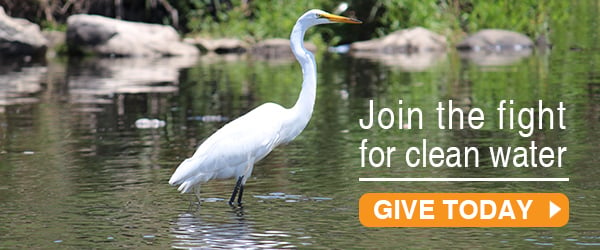Anthropogenic litter in urban streams: adapting ecosystem and community ecology tools to quantify abundance, movement, and biological interactions
- When:
- January 26, 2017: 11:00AM to 12:00PM
- Where:
- 2801 Sharon Turnpike, Millbrook, NY 12545 map
There is a seminar on Thursday, January 26, at 11am in the PSB Auditorium. Dr. Tim Hoellein, an Associate Professor at Loyola University Chicago, presents, “Anthropogenic litter in urban streams: adapting ecosystem and community ecology tools to quantify abundance, movement, and biological interactions.” His research focuses on measurements of ecosystem processes and biogeochemistry. Tim is interested in using metrics of ecosystem function and seasonality to evaluate the human impacts on, and restoration in, urban aquatic ecosystems.
Time: 11am – 12pm
Location: PSB Auditorium
Date: Thursday, January 26, 2017
Host: Dr. Emma Rosi
ABSTRACT
Accrual of anthropogenic litter (AL; refuse such as plastic, paper, and metal), is an emerging concern in ecosystems worldwide. The study of AL’s origin, redistribution, microbial colonization, and consumption has revealed new insights into basic processes in marine ecology. While AL research in freshwaters lags behind, lotic AL studies are well positioned to contribute to research on fundamental processes in urban streams and inform global estimates of AL budgets and movement. Fundamental tools of ecosystem and community ecology (i.e., organic matter movement and biological communities) were adapted to study AL dynamics in urban streams in several individual research projects. AL was separated into size classes that spanned a gradient from fine particles (microplastic, < 5 mm), to intermediate-sized materials (plastic bags, food packaging), to large immobile items (construction debris). Studies examined the capacity of AL to affect basic ecosystem characteristics, including 1) controls on downstream fluxes of particulate and dissolved compounds, 2) effects of surface characteristics on biofilm community composition and activity, and 3) habitat heterogeneity and organic matter retention. Composite results show that anthropogenic litter is abundant, diverse, and mobile, with a diversity of chemical and biological interactions at all spatial scales. The study of anthropogenic litter will enhance the understanding of drivers of ecosystem processes and communities in urban rivers and is needed to unite the early stages of the AL ‘life cycle’ in streams with its later, well-studied stages of accumulation in global oceans.
PRESENTER BIO
Originally from Edinboro, Pennsylvania, Tim Hoellein completed a BS in Biology from West Virginia Wesleyan College in 2000 and a Ph.D. in Biology at the University of Notre Dame in 2008. He was appointed Assistant Professor in the Department of Biology at Loyola University Chicago in 2010 after spending 2 years as an Assistant Professor in Baruch College, New York City. Dr. Hoellein’s research focuses on ecology of water pollution including dissolved chemicals (i.e., nitrogen and phosphorus) and particulate material (i.e., microplastic and trash) in urban aquatic environments. His motivation for this work is attributed to his roots in western Pennsylvania and West Virginia, a region noted for both its natural beauty and industrial pollution. Tim’s overarching goals are to better understand the sources and solutions to a wide array of pollutants, to incorporate students into this work, and to communicate the science to colleagues, ecosystem managers, and the general public.

